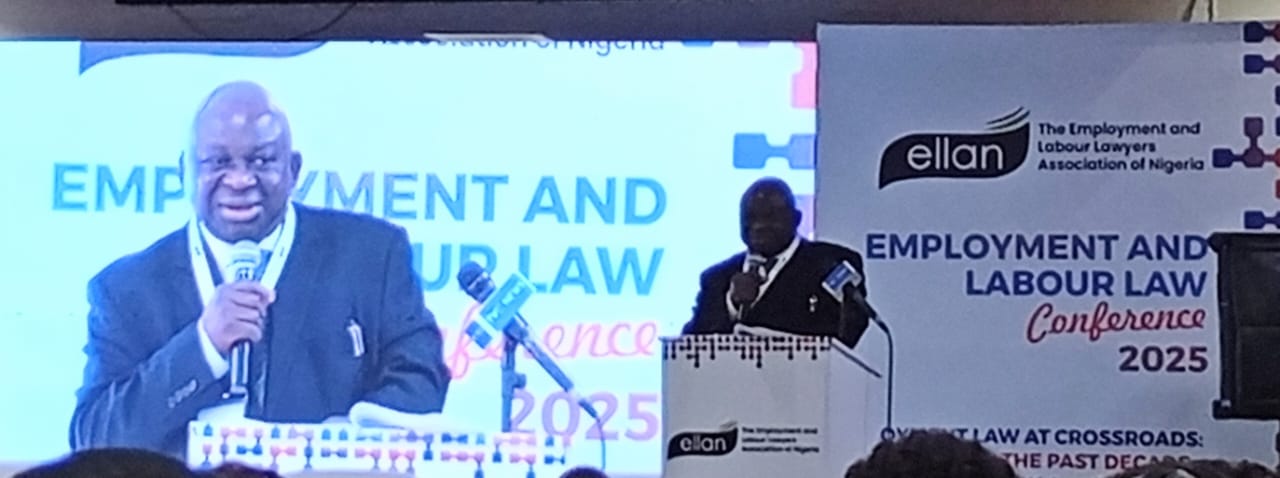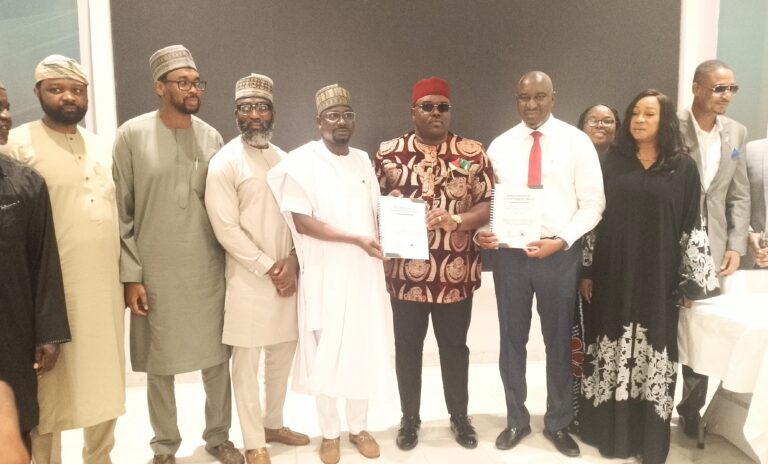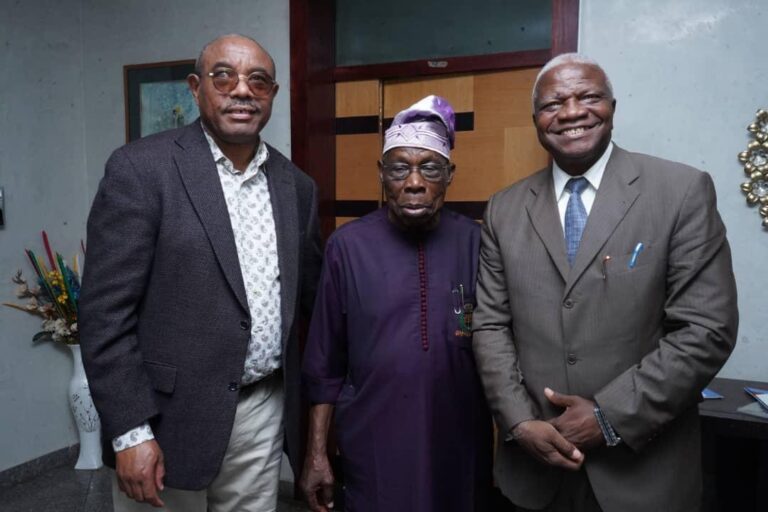
LAGOS – President of the National Industrial Court of Nigeria (NICN), Justice Benedict Kanyip, has affirmed that labour law must remain a safeguard for human dignity, especially in the face of increasing workplace complexities and the growing influence of digital technologies.

Delivering the keynote address at the Employment and Labour Law Conference 2025, organised by the Employment and Labour Lawyers Association of Nigeria (ELLAN) on Wednesday in Lagos, Justice Kanyip highlighted the evolving landscape of employment and industrial relations in Nigeria. The conference was themed: “Employment Law at Crossroads: Reflecting on the Past Decade of Decent Work Advocacy and Charting the Next.”
According to the NICN President, labour law historically emerged to counterbalance the inequality in bargaining power between workers and employers through legislative intervention and collective action.
“Labour law must protect the dignity of workers. It goes beyond regulating the employment relationship—it must address job creation, post-employment benefits, and support even for those out of work,” Kanyip said.
He further clarified the terminological distinction between “labour law” and “employment law,” noting that while labour law relates to collective employment relations, employment law deals more with individual rights within the employment context. He also pointed out that many employers prefer to engage with workers individually rather than through unionised collective power.
Touching on current challenges, Kanyip identified wage negotiations, workplace safety, leave policies, wrongful termination, and the encroachment of digitalisation and artificial intelligence as emerging tensions within the modern work environment.
“The labour market is not just any market. The unique power imbalance and personal dependency of workers demand a protective legal framework,” he said, adding that such dependency is what distinguishes employees from independent contractors and necessitates employment protections.
Justice Kanyip, who also serves on the International Labour Organisation’s Committee of Experts on the Application of Conventions and Recommendations (CEACR), underscored that labour law must evolve to protect workers at every stage—whether employed, unemployed, or retired.
In her welcome address, Omono Omaghomi, Chairperson of the Conference Planning Committee and Partner at Streamsowers & Köhn, said the theme was chosen to provoke deep reflection on Nigeria’s employment law journey over the past decade.
She stressed the impact of the Third Alteration to the 1999 Constitution, which strengthened the role of the NICN through Section 254C, granting it exclusive jurisdiction over employment and labour-related disputes.
“This amendment has positioned the NICN to apply international best practices in dispute resolution, aligning Nigeria with global labour standards,” she noted.
READ ALSO: Senate Clarifies N210trn NNPCL Query, Demands GCEO Ojulari’s Appearance
Senate Mourns Former House Speaker Agunwa Anaekwe, Urges FG to Immortalise His Legacy
Omaghomi also emphasised the importance of institutional frameworks that encourage workplace diversity, innovation, and effective conflict resolution strategies, saying these are essential to the continued evolution of Nigeria’s labour landscape.
The conference drew legal experts, policymakers, labour stakeholders, and industry leaders committed to advancing decent work, industrial harmony, and justice for Nigerian workers.



